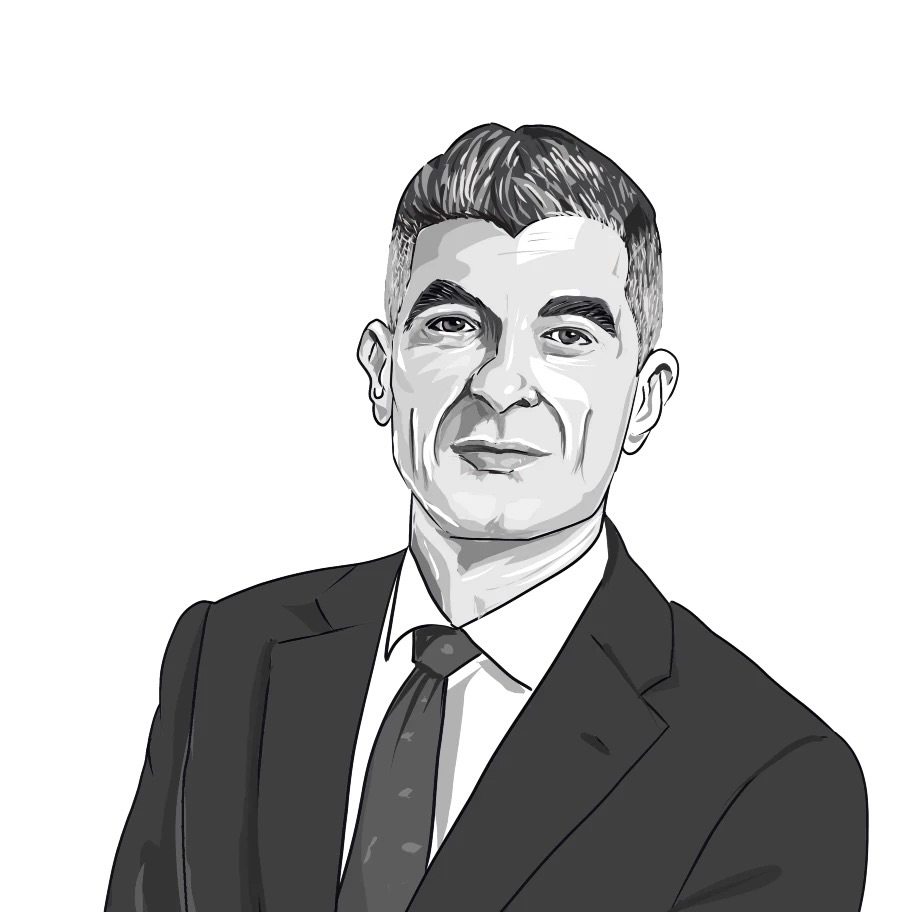The Give And Take
Finding A Balance Between Conservation And Impact Investment At A Time When The Ocean Faces Critical Issues.

-image.webp)
SINCE ITS INCEPTION in 2006, the Prince Albert II of Monaco Foundation’s philanthropic role has focused on targeting missions to protect global health, specifically in the fight against climate change and encouraging renewable energies, safeguarding biodiversity, managing water resources, and combating desertification.
The ocean is an integral part of the Foundation’s DNA and still to this day represents a major part of our portfolio of initiatives to promote the blue economy—via investments, blended finance, or events that bring together innovative entrepreneurs, philanthropists, and investors.
From overfishing to plastic pollution and rising temperatures, its ecosystems are under siege. Around 60% of the world’s marine ecosystems are degraded or unsustainably used, and every year, more than 8 million metric tons of plastic waste enter the seas, wreaking havoc on marine biodiversity and human health alike.
The ocean is more than an environmental concern; it is a vital life-support system. It is our best ally when it comes to regulating climate, as it absorbs 30% of anthropogenic CO2 emissions and provides food security to billions. Yet, it is also an economic powerhouse. The “blue economy”—the sustainable use of ocean resources for economic growth—has the potential to generate billions in revenue while preserving critical ecosystems.
We have thus embraced the blue economy as a cornerstone of our mission, leveraging philanthropy and impact investment to address ocean challenges. Philanthropy remains essential to bridge gaps between the public and private sectors, but as we’ve come to realize, it is not enough to address the vast and daunting challenges faced by the global ocean.
The scale of the problem demands a dual approach: one that marries conservation with a forward-looking investment strategy to drive systemic change.
The private sector holds immense responsibility in addressing ocean health. Industries such as shipping, fishing, tourism, and offshore energy extraction have left lasting footprints. It is staggering to note that 100 companies are responsible for over 70% of the world’s plastic waste generation. By integrating ESG (Environmental, Social, and Governance) principles into their operations, these corporations can catalyze a paradigm shift—reducing their environmental impact while enhancing profitability, reputation, and investor confidence.
For this reason, the Foundation launched, in December 2024, the Blue Economy Index, a collaboration with ODDO BHF Asset Management and Altitude Investment Solutions. This tool identifies and evaluates companies that adopt sustainable practices aligned with the United Nations Sustainable Development Goals (SDGs), particularly SDG 6 (clean water), SDG 12 (responsible consumption and production), and SDG 14 (life below water).
But the Blue Economy Index is not just about measuring progress; it’s about reinvesting in the ocean’s future. With part of its fees allocated to the Foundation’s Mediterranean conservation initiatives, it supports projects that restore marine habitats and protect endangered species.
Today, only 1% of funding goes to Life Below Water, which remains the least funded of the seventeen United Nations Sustainable Development Goals. The 2022 World Economic Forum Report stated that 175 billion USD per year was needed to achieve this goal by 2030, but only 10 billion USD were actually invested as of 2019.
More funding must therefore be directed towards sustainable, innovative businesses.
In this spirit, the Foundation took another leap forward by launching the ReOcean Fund with Monaco Asset Management. This €100 million private equity fund is dedicated to catalyzing ocean innovation. Its focus is mainly on the Series B stage—an area often overlooked by investors but critical for scaling impactful solutions.
The fund prioritizes initiatives that address key ocean challenges: reducing overfishing, mitigating marine pollution, fostering renewable ocean energy, and promoting sustainable aquaculture. These solutions are vital for the transition to a net-zero, regenerative, and equitable economy.
Both the ReOcean Fund and Blue Economy Index are powerful examples of how the private sector can align profit with purpose, fostering a sustainable blue economy while driving meaningful impact on the ground.
The ocean’s health is not an isolated concern; it is a bellwether for the planet’s future. As we grapple with interconnected crises—climate change, biodiversity loss, and food insecurity—the ocean offers regenerative solutions. But time is running out.
The Prince Albert II of Monaco Foundation is committed to scaling up existing solutions while fostering new ones. From blended finance initiatives like the MedFund and the Global Fund for Coral Reefs to convening thought leaders at events like the Ocean Innovators Platform and the Monaco Ocean Week, we aim to mobilize resources, partners, and ideas.
The balance between conservation and business is not a zero-sum game. As stewards of this planet, we must navigate this “give and take” with urgency and care. The blue economy is not just an economic opportunity; it is a moral imperative.
By aligning profit with purpose, we can create a future where the ocean thrives—and with it, all life on Earth.
Olivier Wenden, Vice-Chairman & CEO of the Prince Albert II of Monaco Foundation.
The views and opinions expressed herein are the views and opinions of the author and do not necessarily reflect those of The Monegasque™.
Disclosure: The Monegasque™ enhances the editing process with the help of carefully selected AI tools. These tools provide valuable support without taking over the editing process completely, ensuring that the final product is the result of human creativity and expertise augmented by the benefits of enhanced technology. This article is protected under the copyright of The Monegasque™. Unauthorized reprinting, republishing, or rewriting of this content is strictly prohibited without explicit permission from The Monegasque™. Quotations from this material are permissible provided that a direct link to the full article on The Monegasque™ is included.